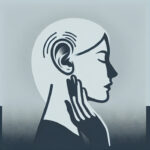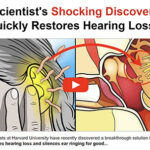This 30 Second Technique is Shockingly Effective
TMJ Hearing Loss: Expert Tips for Prevention and Relief

Understanding TMJ and Its Impact on Hearing
The temporomandibular joint (TMJ) disorder, while primarily affecting the jaw, can also have repercussions for one's hearing abilities. Situated closely to the ear canal and essential for normal jaw functions like chewing and speaking, the TMJ, when dysfunctional, can be associated with a form of hearing disruption. These auditory issues are typically temporary and directly correlate with the state of the TMJ.
Individuals experiencing such hearing disruptions may report a feeling of fullness in the ears, persistent ringing, or a decline in the sharpness of their hearing. Additional symptoms include a popping or clicking noise during jaw movements, as well as discomfort that can radiate towards the ears. The severity of these symptoms can fluctuate, and they often depend on the specific causes and the severity of the TMJ disorder.
The TMJ's proximity to the ear means that any disturbance can affect the surrounding muscles and ligaments, potentially leading to altered pressure in the ear canal or affecting the eustachian tube's function. These changes can manifest as the auditory issues mentioned above, which can sometimes be mistakenly thought to be ear infections or other ear-related conditions.
Causes and Factors Influencing TMJ-Related Hearing Problems
Structural anomalies such as an uneven bite, arthritis within the joint, or injuries to the jaw can lead to TMJ disorders and their subsequent impact on hearing. Even slight irregularities in the TMJ area can have a marked effect on both the movement of the joint and hearing function.
Lifestyle factors, including habitual teeth grinding (bruxism) and excessive gum chewing, can exacerbate the risk of developing hearing issues related to TMJ. Poor posture, particularly concerning the neck and spine, can amplify TMJ symptoms, as can high stress, which may induce involuntary jaw tightening or teeth grinding, thereby intensifying the TMJ disorder.
The amplification of TMJ symptoms due to stress, with an inclusive effect on hearing issues, is well-established. Increased stress can cause heightened muscle tension and abnormal jaw operations, aggravating the TMJ condition. Thus, stress management is a critical element for those looking to mitigate TMJ-related auditory difficulties.
Detecting Hearing Issues Stemming from TMJ
It is essential to know when to seek professional advice for hearing disturbances that may be related to TMJ. Continuous ear discomfort, reduced hearing ability, or a combination of symptoms should prompt a visit to a healthcare provider for assessment to determine if TMJ disorders are the cause or if there's another underlying issue.
Diagnostic methods for TMJ issues may involve a jaw and facial examination, imaging tests like x-rays or MRIs, and dental inspections for bite irregularities. These evaluations are crucial for identifying the root cause of TMJ trouble and for creating a tailored treatment strategy.
Audiologists are key in identifying TMJ-associated hearing loss. They conduct thorough hearing assessments to confirm the presence and specifics of the hearing loss. Their expertise is vital in differentiating TMJ-related auditory problems from other hearing disorders, guiding patients on the appropriate treatment journey.
Preventive Measures for TMJ-Related Hearing Problems
Adopting lifestyle changes such as ensuring correct posture, moderating jaw movements, and managing stress levels can serve as preventative measures against TMJ disorders. Being mindful of jaw tension and taking breaks during intensive jaw activities are also recommended.
Therapeutic exercises and techniques can be beneficial for the TMJ. These may include jaw stretching, massages, and relaxation methods to reduce muscle stress. Consulting with physical therapists, dentists, or TMJ experts is advisable to find the most suitable exercises for individual conditions.
Dietary choices also influence TMJ health. Choosing softer foods can ease the strain on the TMJ, while avoiding chewy or hard foods can prevent excessive jaw activity. Maintaining hydration and a balanced diet supports overall joint health, which can help in preventing TMJ disorders.
Treatment Options for TMJ-Related Auditory Issues
For non-invasive treatment of TMJ disorders, options include the use of oral devices like bite guards, physical therapy, and stress management techniques, aiming to reduce TMJ tension and alleviate symptoms without surgery.
When considering medications for managing TMJ, caution is necessary. Over-the-counter analgesics can provide short-term relief, and muscle relaxants may be prescribed for muscle tension, but these should be used as part of a holistic treatment approach under medical supervision.
Surgical treatments for TMJ disorders should be carefully considered, weighing potential risks against benefits. Surgery is usually a last resort and could offer a more permanent solution, but it also comes with extended recovery times and possible complications. Detailed discussions with healthcare professionals are crucial before opting for surgical procedures.
Home Care Strategies for Easing TMJ Discomfort
At-home remedies to alleviate TMJ pain can include applying ice packs or warm compresses to the affected area to reduce inflammation and muscle stiffness, along with gentle self-massage techniques, to be discontinued if pain increases.
Stress management is another crucial aspect for those with TMJ. Techniques such as deep breathing, meditation, or yoga can help lower stress levels, thus reducing jaw clenching and teeth grinding tendencies. Establishing a regular stress-relief routine is beneficial for both TMJ management and general health.
Adequate rest and a comfortable sleeping position, possibly with the aid of a specialized pillow, are important for TMJ relief, as they can minimize night-time jaw pressure and significantly improve symptoms.
Professional and Complementary Therapies for TMJ
Physical therapy for TMJ management includes exercises designed to improve joint movement and strengthen the muscles around the TMJ. Physical therapists can customize these exercises to address individual TMJ concerns and enhance condition with consistent practice.
Chiropractic care can also be considered for TMJ alignment issues. Experienced chiropractors may perform adjustments to realign the spine and jaw, potentially relieving TMJ symptoms. Working with a chiropractor who has a background in treating TMJ disorders is essential.
Acupuncture and other holistic approaches have been considered for TMJ treatment. Acupuncture, in particular, has been reported to help some patients with pain and inflammation reduction. While opinions in the scientific community may be mixed, many patients have reported relief after these treatments. Consulting with a healthcare provider is important before starting any alternative therapy.
Navigating Life with TMJ-Induced Hearing Loss: Tips and Support
Those affected by TMJ-related hearing difficulties should keep track of their symptoms to recognize triggers and monitor progress, stay informed about the disorder, and engage with others who have similar TMJ issues.
Access to support networks and resources for individuals with TMJ is invaluable. Connecting with others in similar situations can provide emotional support and practical advice for managing symptoms and navigating treatments.
The long-term outlook for individuals with TMJ-induced hearing problems is generally positive, especially with prompt and proper management. A combination of expert care, self-care strategies, and lifestyle modifications can lead to a significant reduction in symptoms and an improvement in quality of life.

Laura Henderson is a health enthusiast and has been interested in healthy and natural methods of eliminating tinnitus and restoring natural hearing for many years.










